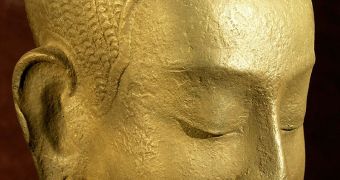In a new scientific study, experts managed to demonstrate that meditation can be a powerful tool for making rational decisions, as well as for dealing with unfair situations when they present themselves.
Researches such as this one are informed by the fact that practitioners of Buddhism, who are known to meditate for prolonged periods of time, were consistently shown in past studies to make more rational decisions than any other group.
The correlation was especially true when it came to money. As such, in the new study, investigators decided to use brain-imaging technologies to look at the brains of people in this group. The end goal was to determine differences in neural activation patterns from “regular” folks.
Experts were surprised to discover that indeed those who practiced Buddhist meditation were using other areas of the brain for the decision making process than individuals who never meditated.
Similarly, neural activation patterns were found to diverge in this group when people were confronted with unfair choices. Even if they had all the right to get angry at the choices they were presented with, so-called meditators proved more capable to make rational, rather than emotional, decisions.
Virginia Tech University physics professor and research team leader Dr. Read Montague says that these differences may appear because meditators literally trained their brains to function differently.
The new study “highlights the clinically and socially important possibility that sustained training in mindfulness meditation may impact distinct domains of human decision making,” he explains, quoted by PsychCentral.
The expert proposes that one of the reasons why people who meditate are able to do this is because they are capable of judging the value of a prospective reward based exclusively on its intrinsic qualities.
But this also implies that meditators simply disregard the social consideration of fairness. “That is, can they uncouple emotional reaction from their actual behavior?” Montague explains.
In the new study, 40 regular people were assigned to a control group, while 26 Buddhist meditators were assigned to a test group. All participants were subjected to a test in which they had to selected between either fair or unfair choices.
As test subjects' brains were struggling to make decisions, researchers were keeping tabs on each individual's neural activation pattern through the use of an investigations technique called functional Magnetic Resonance Imaging (fMRI).
“This study suggests that the trick may lie not in rational calculation, but in steering away from what-if scenarios, and concentrating on the interoceptive qualities that accompany any reward, no matter how small,” the team concludes.

 14 DAY TRIAL //
14 DAY TRIAL //